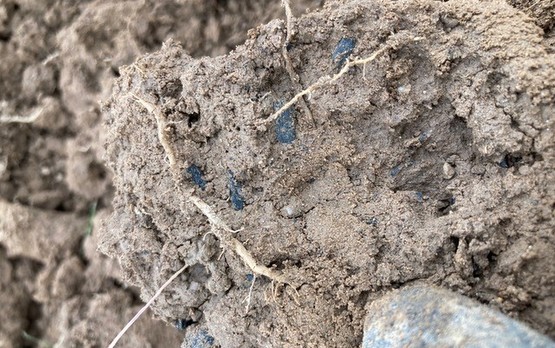Roadmaps for Carbon Farming Schemes
Roadmaps for Carbon Farming Schemes (Road4Schemes)
‘Carbon farming’ describes agricultural techniques that remove CO2 from the atmosphere and store carbon in agroecosystems, e.g. as biomass or soil organic matter. It is a key element of climate-change mitigation. There are already various private and public initiatives in the EU and in Switzerland that compensate farmers for their climate services.
Road4Schemes has identified around 150 incentive or compensation schemes in Europe. A selection of these is examined in greater detail and assessed for strengths and weaknesses. Most of the systems focus on the creation of soil organic matter and differ mainly in terms of their monitoring, reporting and verification (MRV) methods. Some schemes include elaborate concepts for the direct measurement of stored carbon (‘result-based schemes’), while others reward the implementation of certain measures or the adaptation of the form of management, such as winter cover in arable farming (‘action-based schemes’). Road4schemes also considers how these schemes are perceived by different stakeholders and aims to propose a roadmap for the implementation of suitable schemes.
The concept of remunerating the climate service provided by biochar through carbon storage is already established by the standard of the European Biochar Certificate, to which Agroscope scientists also contribute. When this biochar is applied to soils, carbon storage by soil organic matter cannot be distinguished from the already certified and remunerated contribution of biochar to carbon storage. Agroscope is therefore investigating how climate services provided by soil organic matter can be measured correctly over the long term, thereby eliminating multiple certifications of biochar carbon storage.
Caused by various human activities, methane emissions make a significant contribution to global warming. The emission of one kilogram of methane increases the greenhouse effect considerably more than the same amount of CO2. Unlike CO2, however, methane decays in the atmosphere within one to two decades. This means that the warming effect of methane is of limited duration. Consequently, methane emissions could be offset by a temporary removal of CO2 from the atmosphere. Agroscope is developing a method for offsetting methane emissions e.g. by planting field hedges/agroforestry or other short-to-medium-term methods for carbon storage. This could lead to the creation of financial incentives encouraging farmers to implement e.g. agroforestry measures that contribute to both climate-change mitigation and adaptation.
Publications
Participating organisations
- Aarhus University (AU - Koordinator)
- Stichting Wageningen Research (WR)
- Flanders Research Institute for Agriculture
- Fisheries and Food (EV ILVO)
- INRAE
- Agentur für Gesundheit und Ernährungssicherheit (AGES)
- Thünen Institut, International Agricultural Research and Traning Center (IARTC/TAGEM)
- Czech University of Life Sciences Prague






